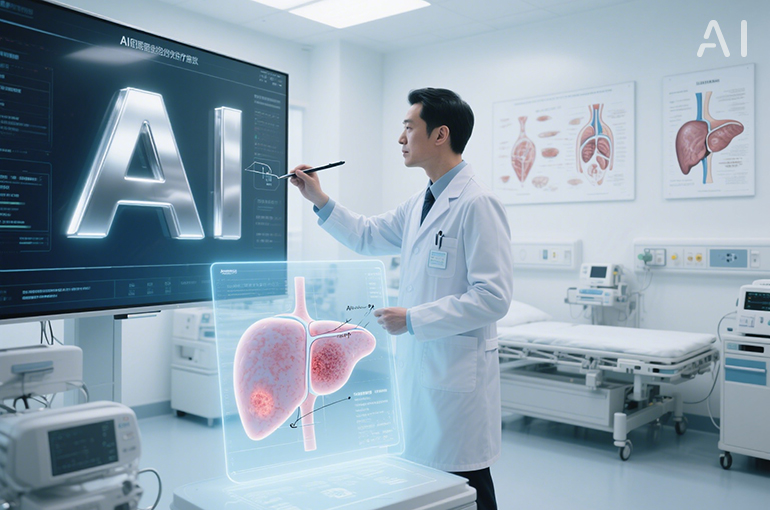 Shanghai’s Top Hospitals Race to Deploy Medical LLMs to Stay Ahead in AI Era
Shanghai’s Top Hospitals Race to Deploy Medical LLMs to Stay Ahead in AI Era(Yicai) July 23 -- As the artificial intelligence era gathers momentum, many leading hospitals in Shanghai are developing their own medical large language models. There are now around 300 of these models in China, half of which were released in the first half of this year, according to incomplete statistics.
During a recent visit to the Fengxian campus of Xinhua Hospital, Yicai interacted with an AI agent which is able to advise patients as to which department to visit and the exact location of the consultation room after being given a description of the symptoms.
Leveraging its strengths in pediatrics, Xinhua Hospital has also deployed a specialized AI pediatric model that supports pediatricians in diagnosing and treating young patients. It can also offer parents useful advice on how to care for their children.
Other top hospitals in Shanghai, such as Zhongshan Hospital, Ruijin Hospital and Renji Hospital, have also rolled out their own AI models based on their specialties in cardiovascular diseases, pathology and urology. For example, the department of cardiology at Zhongshan Hospital has released China’s first large language model for heart disease, called CardioMind. It has also developed a "digital avatar" of Ge Junbo, a leading cardiologist at the hospital.
The CardioMind AI tool is already outperforming many medical professors when it comes to medical knowledge and treatment capabilities and is serving as a ‘super brain’ that supports the hospital’s cardiology team, Zhongshan Hospital said. Soon every doctor in the hospital will have his or her own AI agent which will be able to serve patients anytime, anywhere without time or location constraints.
AI diagnosis and treatment models are similar to creating a ‘self-driving’ system for healthcare, with doctors in the driver’s seat, Zhou Jian, president of Zhongshan Hospital, told Yicai. Once AI can handle 80 percent of routine treatments, doctors will be able to focus more on complex cases and meaningful patient communication.
Hospitals’ massive patient databases provide high-quality resources for AI model training. Zhongshan Hospital’s cardiology department handled 820,000 patient visits last year. The department’s hundreds of thousands of electronic medical records, its rich medical expertise and vast experience of treating difficult cases create a rich data bank that can help train the models to "think like an expert."
"Before building AI agents, the first thing hospitals need to do is form a solid database foundation in order to collect the high-quality data needed to train these large models," an insider from the information technology department of one of Shanghai’s top hospitals told Yicai.
Meanwhile, digital avatars of top doctors are starting to show up in hospitals. These AI ‘twins’ can handle tasks such as patient consultations, education, public outreach and medical lectures.
Editors: Tang Shihua, Kim Taylor